Microfluidics Blog Posts

Modeling Non-Newtonian Flow in Porous Media
Learn how to use simulations to develop a homogenized approach for modeling non-Newtonian flow in porous structures.

How to Model Periodicity in Microfluidic Systems
By modeling periodicity in a microfluidic device with serpentine channels, you can determine the required channel length that will ensure good mixing of the chemical species.

Modeling an Acoustic Trap: Thermoacoustic Streaming and Particle Tracing
Acoustic traps are used in a range of biomedical applications for manipulating cells and particles. See how an acoustic trap can be simulated in COMSOL Multiphysics® here.

Modeling a Rapid Detection Test in COMSOL Multiphysics®
Curious about how exactly the rapid detection tests for COVID-19 work? Get a comprehensive explanation here, as well as 3 example models in COMSOL Multiphysics®. (Part 2 of 2)
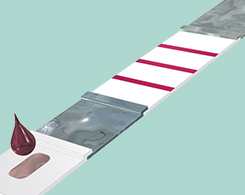
An Introduction to the Physics of Rapid Detection Tests
Rapid detection tests based on lateral flow assay (LFA), also called immunochromatographic tests, can be thought of as quite advanced, yet very robust, microlaboratories. (Part 1 of 2)
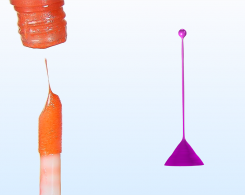
How Does This Lip Gloss Appear to Defy Gravity?
We attempt to explain a mysterious, gravity-defying phenomenon involving a viral video, dielectric materials, electrostatics, and lip gloss.
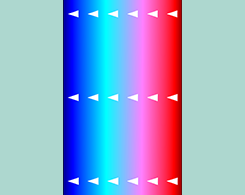
Exploring the 4 Basic Modes of Electrophoresis
Zone electrophoresis, moving-boundary electrophoresis, isotachophoresis, and isoelectric focusing. In most cases, the physics of new electrophoretic methods can be related back to these 4 modes.
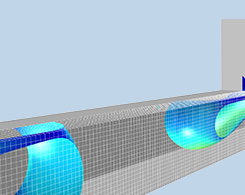
Modeling and Simulation of Multiphase Flow in COMSOL®: Part 1
Multiphase flow can be modeled on scales ranging from fractions of microns to tens of meters. Get an overview of the dispersed and separated multiphase flow models for different types of flow.
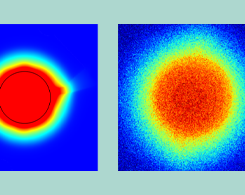
Developing a Silicon MEMS Chip for On-Demand DNA Synthesis
The development of genome editing tools like CRISPR-Cas9 has increased the demand for DNA synthesis technology. Researchers are creating a DNA synthesis platform to broaden horizons in the field.
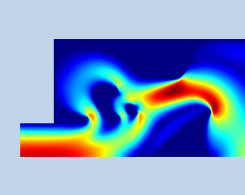
Performing a Shape and Topology Optimization of a Tesla Microvalve
1 Tesla microvalve model, 2 ways: The shape optimization features available in COMSOL Multiphysics enable you to improve simple designs inspired by more complex topology optimization results.

Speeding Up DNA Separation in a Microchannel via Simulation
DNA separation takes a long time using traditional methods. Now, researchers from the Missouri University of Science and Technology have found a faster way to get the job done.
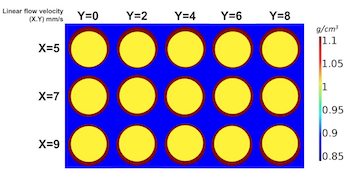
Improving IFE Target Fabrication with a Droplet Microfluidics Method
A common joke is that fusion energy is 30 years away, and always will be. Researchers are using simulation to tackle the challenges involved with of inertial fusion energy target production.

Analyzing a New Droplet-Forming Fluidic Junction with Simulation
A novel oscillatory microfluidic junction design, called a “batwing”, is improving the field of droplet microfluidics by consistently producing uniform and complex double-emulsion droplets.
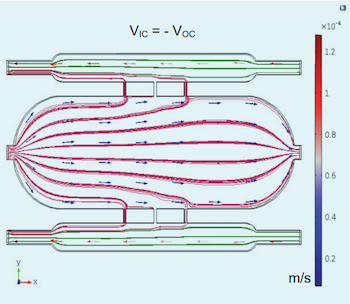
Simulating Cancer Cell Migration in Microgravity with COMSOL®
Researchers used multiphysics simulation to determine how microgravity effects the migration of metastatic cancer cells. Their results could have new implications for therapy and treatments.
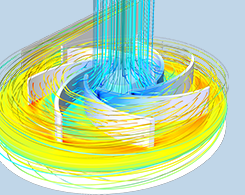
Predict the Performance of Rotating Cone Micropumps with Simulation
Researchers from Texas A&M University used multiphysics simulation to evaluate the fluid dynamics and performance of a rotating cone micropump, a key component in many types of process equipment.
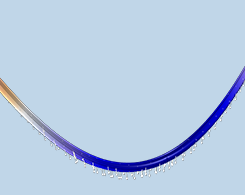
Understand Phenomena in the Viscous Catenary Problem via Simulation
The viscous catenary problem is theoretically and experimentally significant in many industries due to the complex phenomena it entails. Simulation can help us understand this problem.
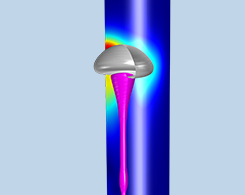
Preventing Bubble Entrapment in Microfluidic Devices Using Simulation
Microfluidic devices are no match for bubbles. In fact, if bubbles become trapped in a microfluidic device, it could malfunction. Veryst Engineering created a CFD model to study this process.

Keynote Video: Solving 2 Transport Process Problems with Simulation
In a keynote presentation from the COMSOL Conference 2016 Boston, Carl Meinhart from the University of California, Santa Barbara and Numerical Design discusses simulating transport processes.
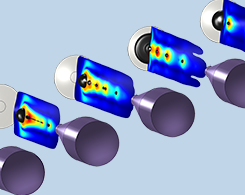
Designing Inkjet Printheads for Precise Material Deposition
The design of an inkjet printhead nozzle is important in order for the device to have precise material deposition, whether it is used in a 2D or 3D printer.
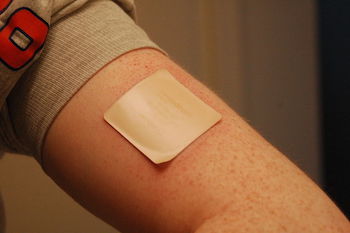
Designing Effective Transdermal Drug Delivery Patches with Simulation
Transdermal drug delivery (TDD) patches are more effective and convenient than traditional drug delivery methods. See how Veryst Engineering simulated the diffusion process in a TDD patch.
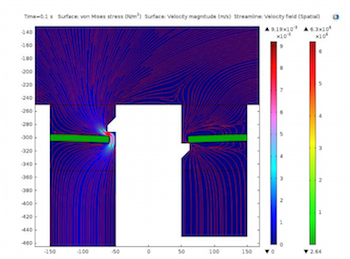
Evaluating an Insulin Micropump Design for Treating Diabetes
Researchers from the University of Ontario Institute of Technology used simulation to develop a MEMS-based micropump that could administer insulin injections in a safe and painless way.
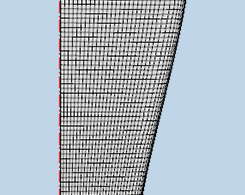
Model How the Bubbles in a Glass of Stout Beer Sink, Not Rise
Ever notice how the bubbles in certain kinds of stout beer sink to the bottom of the glass instead of rising to the top? We explain this phenomenon using fluid flow simulation.
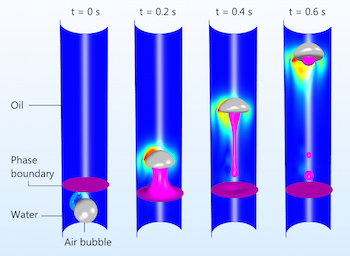
Simulate Three-Phase Flow with a New Phase Field Interface
The Three-Phase Flow, Phase Field interface, used for modeling separated three-phase flow, computes the shape of the interfaces between the 3 phases and accounts for interactions with walls.
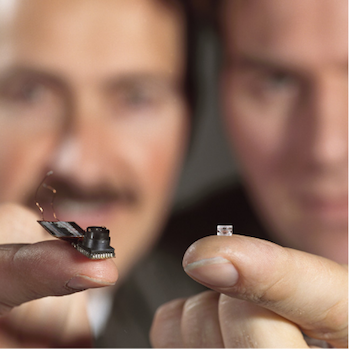
Focusing on an Electrowetting Lens
Simulation can be used to test different viscosity values and analyze the physics of electrowetting lenses, such as those used to change the view angle of cameras.
